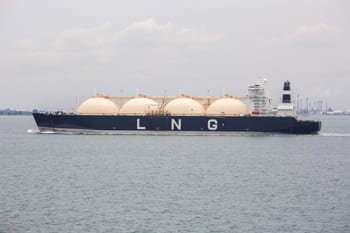Credit: 123RF.com/Rice University
Policy that raises barriers to international trade does not bode well for U.S. and global energy security, according to a new research paper by experts in the Center for Energy Studies at Rice University's Baker Institute for Public Policy and at the Korea Energy Economics Institute.
"Mercantilism's Groundhog Day: The U.S.-China Trade War and Some Regional Energy Market Implications" was authored by Kenneth Medlock and Ted Loch-Temzelides of Rice and Woongtae Chung of the Korea Energy Economics Institute. It examines the potential impacts of the U.S.-China trade dispute for U.S. and Northeast Asian economies, with a specific focus on energy markets.
"In general, barriers to international trade are detrimental to U.S. and global energy security, as they raise uncertainty, harm investment and harm efficiency, ultimately leading to higher prices," the authors wrote. "Market depth, which is critical for energy security, can be compromised if policy becomes burdensome for new investments, capital flows and market participation."
Shifts in U.S.-China trade policy will likely drive a reshuffling of the international energy supply portfolio, the researchers said. "However, Northeast Asian trading partners that are mutual to the U.S. and China—in particular Japan and South Korea—are at risk of being caught in a vortex of expanding collateral damage," they wrote.
That said, long-run negative implications for the broader international energy market are likely to be mediated as long as the U.S.-China trade rift remains bilateral in its focus, the authors said.
"Given the Trump administration's apparent desire for trade surpluses, we consider it likely that the U.S. will take steps to facilitate greater energy exports," the authors wrote. "This will carry spillover benefits for global energy markets and enhance energy security more broadly. However, if an implication of a protracted U.S.-China trade war is slower global economic growth, there is a risk that any positive balance of trade impacts from expanding U.S. energy exports will be limited.
"Therein lies a conundrum: Promote growth through more open trade, thereby expanding U.S. energy exports, or adopt protectionist measures, thereby compromising trade and diminishing the prospects for expanding U.S. energy exports."
The researchers found evidence that tariffs on such imported energy-related commodities as solar panels do not appear to be negatively impacting imports due to a shift in the source of imports and counterbalancing policies at the federal, state and local levels.
"In the latter case, for example, if direct and/or indirect subsidies to residences for the installation of solar panels encourage demand, then those policies work to offset the negative effects of tariffs," the authors wrote. "Hence, there appears to be a contradictory approach to policy when it comes to addressing costs."
The authors concluded, "The recently signed "Phase One' agreement is a positive step toward resolution of the U.S.-China trade dispute, but the road ahead remains rife with challenge. The agreement, given the current energy commodity landscape across crude oil, natural gas and coal, presents some serious logistical challenges. These challenges will ultimately render a positive outcome dependent on the economic health of nations other than China and the U.S. In particular, meeting the terms of the Phase One agreement will depend heavily upon the broader market's ability to absorb the increased volumes of crude oil, liquefied natural gas and coal.
"Beyond this, a more robust "Phase Two' is not expected until after the 2020 U.S. presidential election, so although the U.S.-China trade dispute may be temporarily relaxed, it is far from settled."
More information: Mercantilism's Groundhog Day: The U.S.-China Trade War and Some Regional Energy Market Implications. www.bakerinstitute.org/media/f … hinatrade-020420.pdf
Provided by Rice University
























